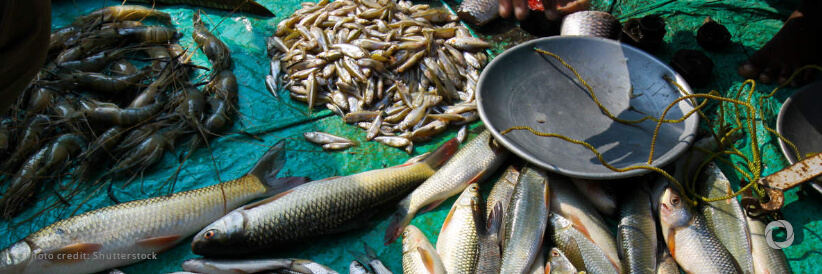The overall sustainability of the EU fisheries continues to gradually improve and fewer stocks are overfished, according to the Commission Communication ‘Sustainable fishing in the EU: state of play and orientations for 2025‘ adopted. At the same time, more efforts are necessary to ensure the resilience of the fisheries sector and the long-term sustainability of key species across all sea basins.
The communication outlines the orientations for the Commission proposals for fishing opportunities for 2025 and starts a consultation process with interested actors. The proposals to be adopted after summer will aim to keep fish stocks that have already reached sustainable levels at those levels while helping other stocks recover. The Commission’s Communication is based on independent scientific assessments.
Improvements in North-East Atlantic, Mediterranean, and Black Seas
The Communication highlighted that fish stocks in the North-East Atlantic on average are within healthy ranges, with the latest assessment pointing to the best sustainability results so far, proving that the EU sustainable fisheries management decisions and fishers’ efforts are paying off. This is particularly the case in the EU waters in the Atlantic. However, several species essential for ecosystem balance and commercial purposes continue to underperform.
In the Mediterranean and the Black Seas, while stocks are slowly becoming healthier, fishing mortality is still too high. Although the fishing mortality rate is at its lowest level so far, it is still 20% above the recommended sustainability rate. Greater commitment and continuous efforts are necessary to allow key species and ecosystems to fully recover.
The situation in the Baltic Sea remains extremely worrying, as fish stocks continue to decline due to various pressures. Four out of ten stocks in the Baltic Sea are no longer targeted and may only be landed as by-catch. The Commission will continue to take measures to address all the various pressures on fish stocks and help improving the state of the ecosystems in the Baltic Sea. Nevertheless, Member States should also continue their efforts to reverse this situation by fully implementing the EU legislation.
Climate pressures and IUU fishing impact coastal communities
In addition, the Communication shows that fishing communities continue to be affected by climate change, leading to uncertainties due to the declining availability of fish stocks they depend on for their livelihood. This is also the case for communities relying on overfished stocks.
Furthermore, illegal, unreported, and unregulated (IUU) fishing impacts the access of fishers to sufficient resources. More efforts are needed to combat it, ensuring compliance with conservation and control measures, including those involving non-EU countries.
Next steps
Member States, Advisory Councils, the fishing industry, non-governmental organizations, and interested citizens are encouraged to share their perspectives on the state of play and direction of the fishing opportunities for 2025. They are invited to express their views until 31 August as part of the online public consultation.
After the public consultation, the Commission will table its three proposals for the 2025 fishing opportunities: in the Atlantic and North Sea, the Baltic Sea, as well as the Mediterranean and Black Seas. The proposals will be based on the EU multi-annual fisheries management plans and on scientific advice provided by the International Council for the Exploration of the Sea (ICES), as well as the economic analysis provided by the Scientific, Technical and Economic Committee for Fisheries (STECF). The proposals will also incorporate adjustments resulting from the implementation of the landing obligation.
Finally, the Council will discuss the Commission’s proposals and decide on the fishing quotas for 2025 at its meetings in October and December this year.
In parallel, the Commission is preparing an evaluation of the common fisheries policy to analyze how its instruments and measures have been performing over the last decade. The evaluation will also look at the reshaped dynamic of fishing relations with non-EU countries.

